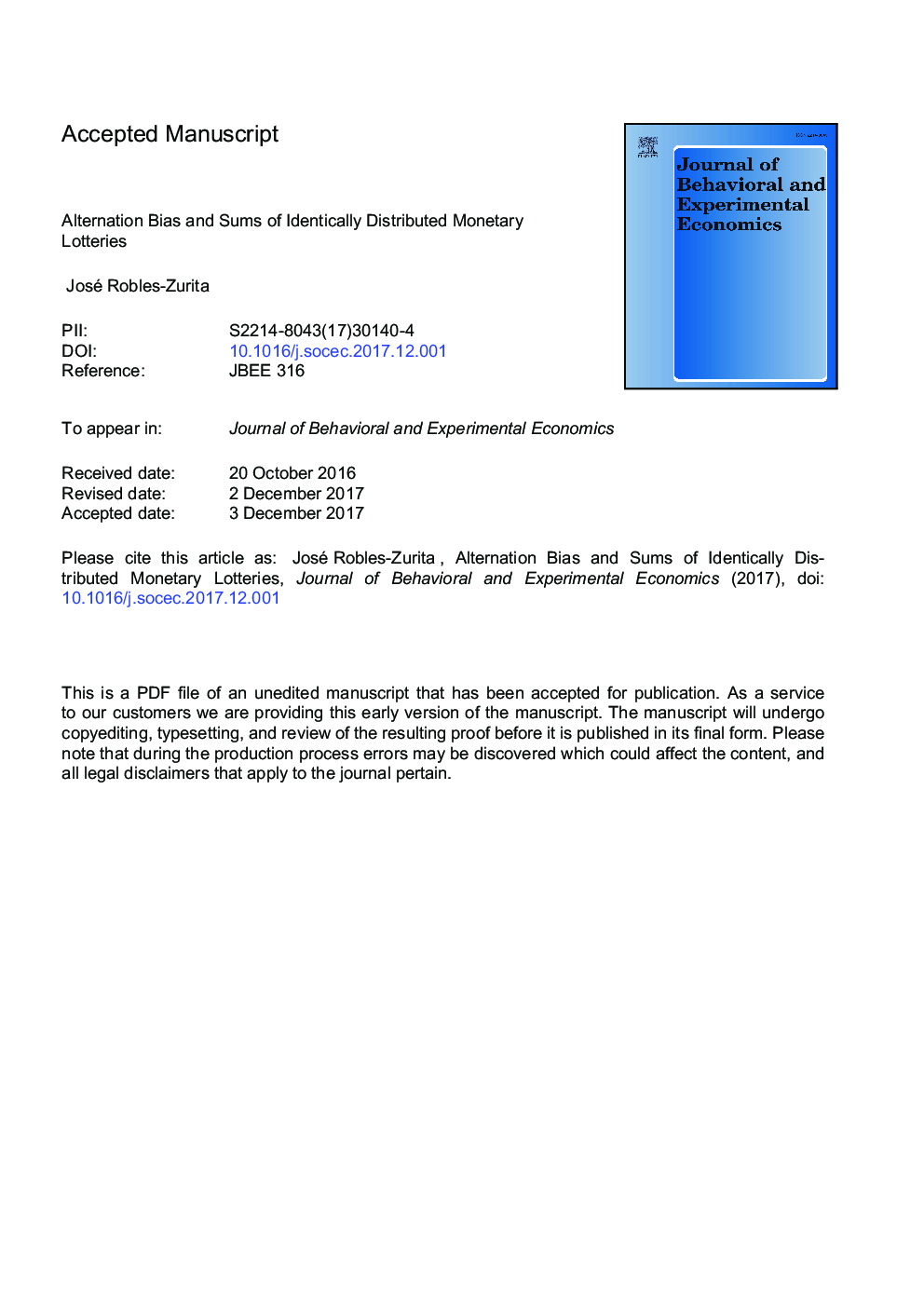| کد مقاله | کد نشریه | سال انتشار | مقاله انگلیسی | نسخه تمام متن |
|---|---|---|---|---|
| 7242023 | 1471542 | 2018 | 31 صفحه PDF | دانلود رایگان |
عنوان انگلیسی مقاله ISI
Alternation bias and sums of identically distributed monetary lotteries
ترجمه فارسی عنوان
تعصب متناوب و مبلغ قرعه کشی پولی یکسان توزیع شده
دانلود مقاله + سفارش ترجمه
دانلود مقاله ISI انگلیسی
رایگان برای ایرانیان
کلمات کلیدی
موضوعات مرتبط
علوم انسانی و اجتماعی
اقتصاد، اقتصادسنجی و امور مالی
اقتصاد و اقتصادسنجی
چکیده انگلیسی
The alternation bias is the tendency of people to believe that random events alternate more often than statistical laws imply. This paper examines the theoretical effect of this psychological bias on preferences over repeated investments by using a model of the belief in the law of small numbers. An alternation bias agent (ABA) has a different perception to a rational agent (RA) about the outcome distribution of the sum of n realisations of a lottery. The results show that an ABA, that maximises expected utility, could reject a single realisation of a lottery while accepting several repetitions in accordance with Paul Samuelson's fallacy of large numbers. Furthermore, the explanation of this type of preference, based on the alternation bias, is compatible with previous behavioural accounts. A more general result shows that the alternation bias increases (decreases) the expected utility of the perceived sum of identically distributed lotteries if individuals are risk averse (risk seekers).
ناشر
Database: Elsevier - ScienceDirect (ساینس دایرکت)
Journal: Journal of Behavioral and Experimental Economics - Volume 72, February 2018, Pages 78-85
Journal: Journal of Behavioral and Experimental Economics - Volume 72, February 2018, Pages 78-85
نویسندگان
José Robles-Zurita,
